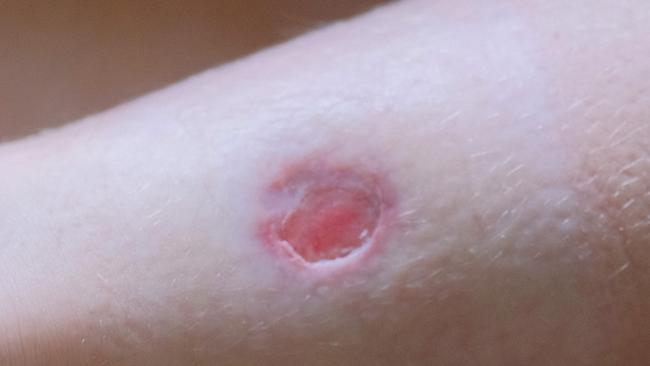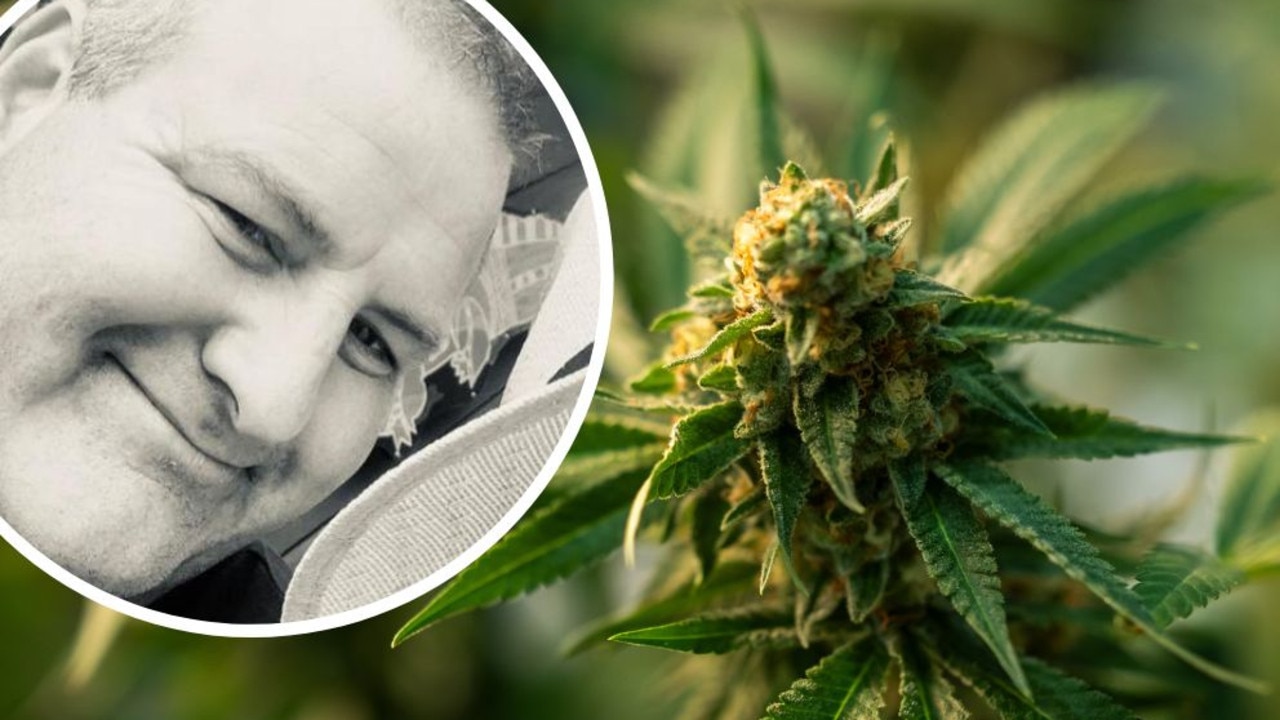Possums infecting people with Buruli ulcer, doctor Daniel O’Brien warns
Doctors are warning good Samaritans that they risk contracting a nasty flesh-eating ulcer by helping unwell possums, as Geelong racks up its worst year on record for cases.

Geelong
Don't miss out on the headlines from Geelong. Followed categories will be added to My News.
Would-be wildlife warriors are being warned not to handle unwell possums, after cases of a flesh-eating ulcer emerged in people bitten or scratched by an infected animal.
Greater Geelong has racked up its worst year on record for Mycobacterium ulcerans, the bacterium that causes the Buruli ulcer skin infection.
According to health department data the municipality has recorded 47 cases so far this year, overtaking 46 across 2022, the previous highest annual total on record.
The toxins made by the bacteria destroy skin cells, small blood vessels and the fat under the skin, which causes ulceration and skin loss.
Local Buruli ulcer expert and deputy director of the Barwon South West public health unit Daniel O’Brien said he had encountered cases where patients had been infected after they had been bitten or scratched by an unwell possum while trying to help it.
“I’ve treated a couple of cases locally where upon investigating possible sources of their ulcer, we have discovered they have handled a sick possum and then been bitten or scratched by it,” he said.

“I encourage anyone that comes across a sick possum, especially one displaying an open sore or ulcer, to refrain from handling the animal and seek assistance from wildlife assistance services or veterinarians who have experience in handling sick wildlife.
“If handling the possum is unavoidable, take precautions such as wearing protective clothing.”
The public health unit said as the region approached the peak infection period, it was important for those that came across possums, especially if sick or with exposed ulcers, to take care and protect themselves against possible infection.
The highest risk for infection occurs during the warmer months, but it usually takes between four to five months for an ulcer to develop.
Lesions typically present as a slowly enlarging painless lump or wound which can initially be mistaken for an insect bite.
There is increasing evidence that mosquito bites and possums play a role in disease transmission in Victoria.
The public health unit is also urging people to take steps to avoid being bitten by mosquitoes.
Research has shown that areas where people are most often contracting Buruli ulcer are areas where soil, mosquitoes and possums are most frequently carrying the causative bacteria.
More Coverage
Originally published as Possums infecting people with Buruli ulcer, doctor Daniel O’Brien warns





